How To Set Up An Ssd Windows 10
This is a recopilation of the tweaks that I consider the most useful to optimize your SSD (Solid state bulldoze) functioning on Windows 10 platform
One of the considerations to increment de lifespan of an SSD is to reduce the unnecessary writing to disk. Write times can be a little slower than read times and so reducing the write functioning will effect in a performance increment.
Remove pagefile
Disable Indexing
Disable prefetch and superfetch
Verify TRIM
Disable Fast Startup
Movement Temp folders
Move User folders
Set Recycle Bin size
Remove pagefile
Windows uses a page file to store retention data that tin can't be held past the RAM. This is useful merely if you have a low RAM size. If you have enough RAM installed you lot tin disable the pagefile in this drive, or move it a dissimilar disk.
Commencement push > search Control Panel and select System
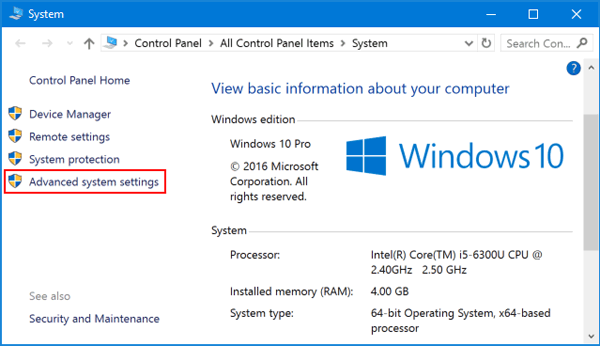
Go to Advanced system settings
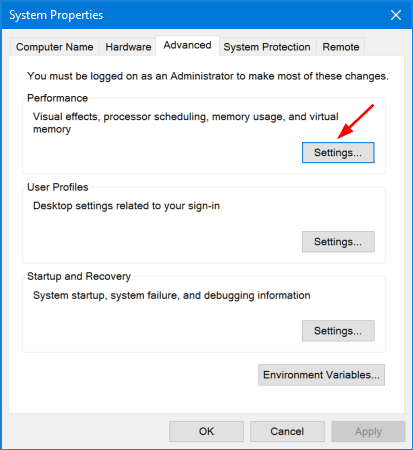
Advanced tab > Functioning section > Settings
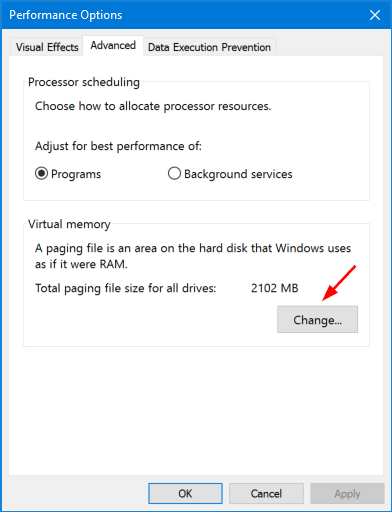
Advanced tab > Virtual Memory section > Alter
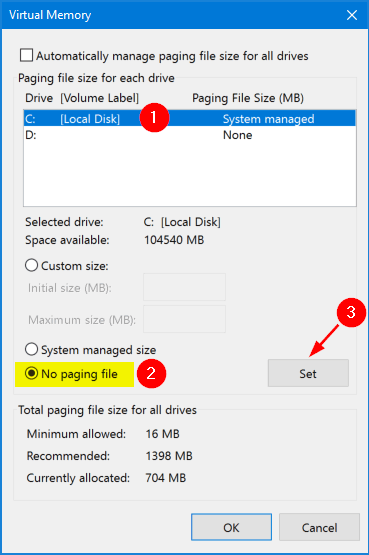
Uncheck "Automatically manage paging file size for all drives"
Select your SSD drive > Select No paging file > Fix
Disable Indexing
The indexing service in Windows is implemented to make the search role perform faster by storing an alphabetize of file locations. The quick response times of SSDs make this service obsolete and unnecessary
Select your SSD bulldoze > Correct click > Properties
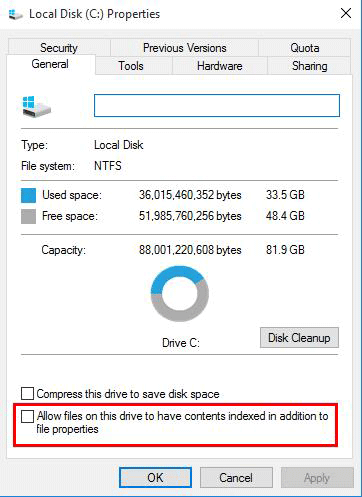
Uncheck "Let files on this drive to accept contents indexed in addition to file properties"
Apply
OK
Disable prefetch and superfecth
Those techniques is to speed up visiting in Windows XP and Vista organisation. SSD doesn't need this at all.
Offset button and search Regedit
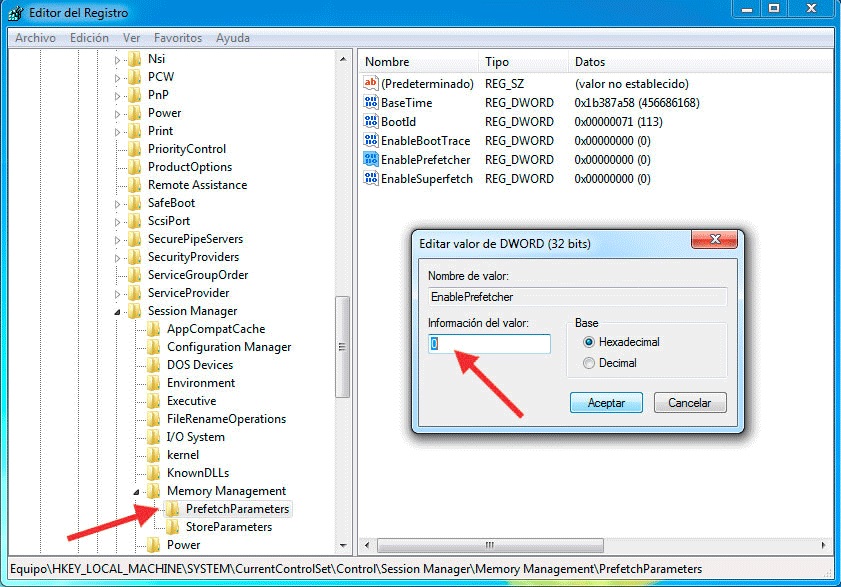
Navigate to HKEY_LOCAL_MACHINE\SYSTEM\CurrentControlSet\Control\Session Manager\Retentivity Management\PrefetchParameters
Set up EnablePrefetcher and EnableSuperfetch to 0
If you don't have an entry for EnableSuperfetch but disable the Sysmain Service.
Commencement push button > search for Services
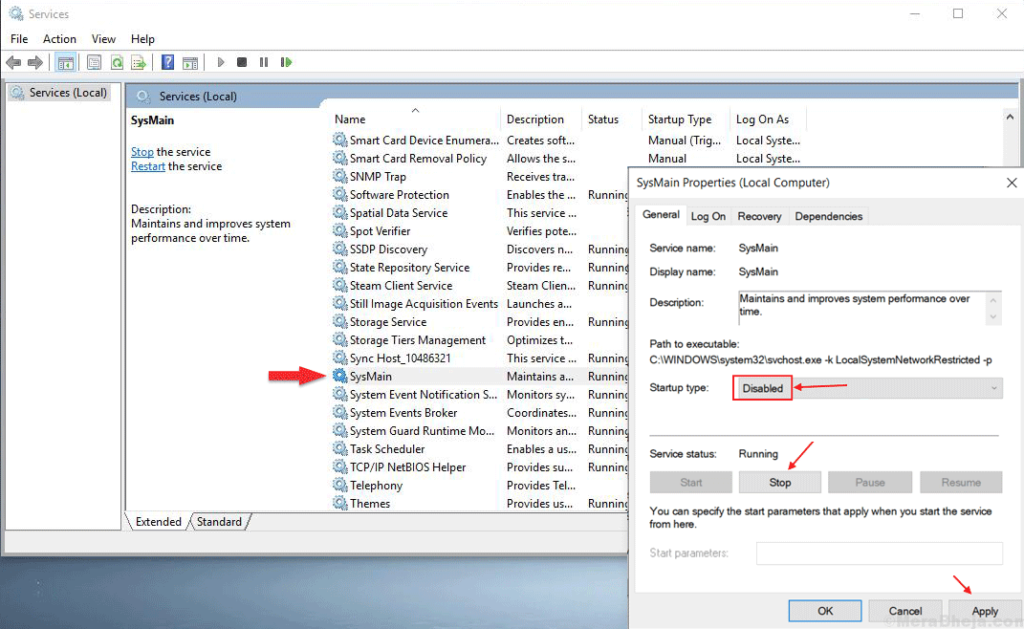
Search for SysMain service and set Startup type to Disable and you can Stop information technology if it's already running.
Verify TRIM is Operation
Open up a Command Prompt window and run the command:
fsutil behavior query DisableDeleteNotify
If it'southward ready to "0", TRIM is enabled and everything is good. If it's prepare to "1", TRIM is disabled and you demand to enable it

If TRIM is disabled y'all can enable it using this command:
fsutil behavior set DisableDeleteNotify 0

Disable Fast Startup
When you shut down your computer with Fast Startup enabled, Windows closes all applications and logs off all users, at this moment saves the current organization state to the hibernation file, and turns off the calculator.
When you start the calculator once more, Windows does not accept to reload the kernel, drivers, and system state. Instead, it only refreshes your RAM with the loaded image from the hibernation file and delivers you to the login screen. This technique can save considerable time off your starting time up but it's a substancial increase on disk writes. SSD drives has an aceptable startup speed so we can disable this option.
Outset push button > search Control Console and select Ability Options
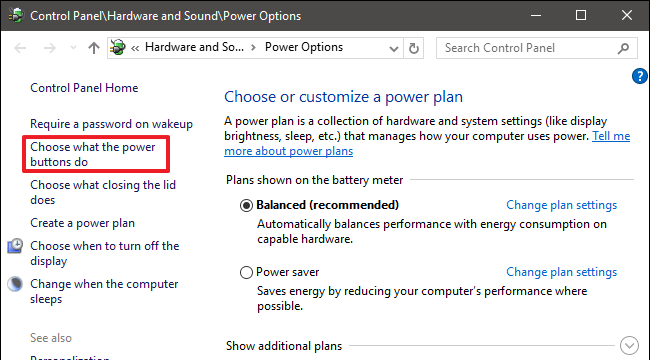
Click "Choose what the power buttons do"
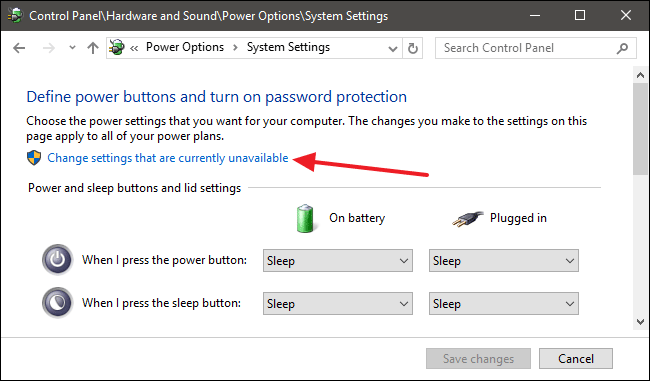
Click "Change settings that are currently unavailable"
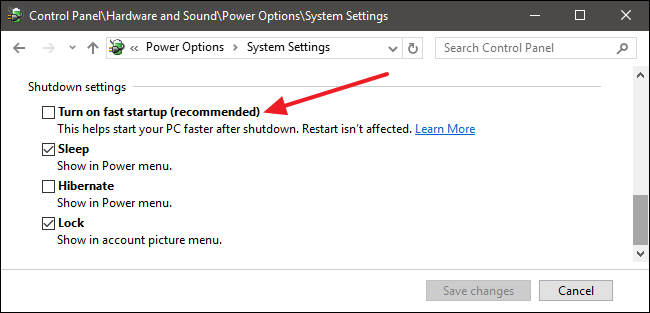
Uncheck "Turn on fast startup (recommended)" and Save Changes
Movement temp folder
One of the folders more overwrited are the temporary folders. If you have a HDD yous can move the windows temp folders to this drive.
Create two new folders TEMP and TEMPUSER in your HDD drive.
TEMP folder volition be used for the system when no user is logged.
Now we need to alter the temp folder enviroment variables, then:
Start button > search Edit the arrangement environment variables
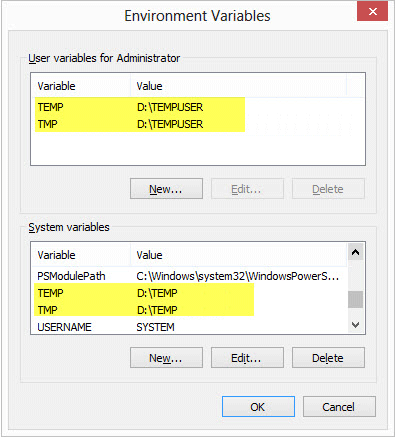
Change the TEMP and TMP variables to signal to the new folders location in both sections.
Move User Folders
Nosotros can move some folders related to our user account like Downloads or Documents to other drive. This folders has no big bear upon in our SSD but information technology all adds up.
The get-go pace is to create the new folders in our HDD bulldoze, nosotros need 1 folder for each user folder. I adopt to maintain the original folders bureaucracy, so I volition create:
D:\
D:\Users\
D:\Users\Downloads
D:\Users\Documents
D:\Users\Desktop
At present Right click on the starting time folder to move
(Downloads east.one thousand.) in the left console of the Windows explorer > Backdrop
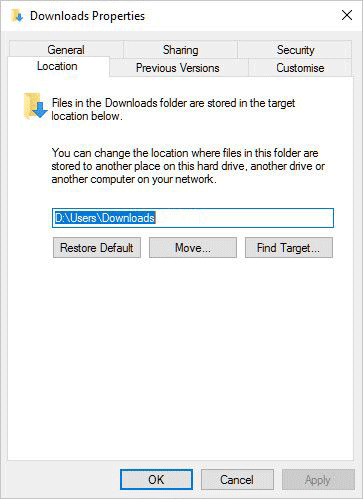
Select the Location tab, and put the path to the new binder.
Now Move
Utilise
Ok
Echo this steps with the other folders
Set Recycle Bin Size
By default the space reserved to the recycle bin for each disk is oversized.
I, personally, don't demand a recycle bin of 40 gb
To fix the size of the recycle bin for each disk:
Right click on the Recycle Bin icon on yout Desktop.
Select Properties
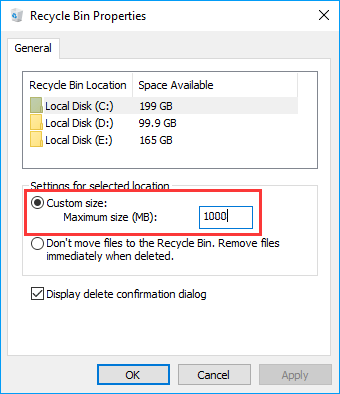
Select your SSD Drive
Set a new maximum size value in the Custom size field
Apply
Yous may besides like:
Support this weblog!
For the by year I've been dedicating more than of my time to the creation of tutorials, mainly about game development. If you think these posts have either helped or inspired you, delight consider supporting this blog. Give thanks you so much for your contribution!
How To Set Up An Ssd Windows 10,
Source: https://www.parallelcube.com/2019/05/30/how-to-optimize-your-ssd-windows/
Posted by: shanerattle1974.blogspot.com


0 Response to "How To Set Up An Ssd Windows 10"
Post a Comment